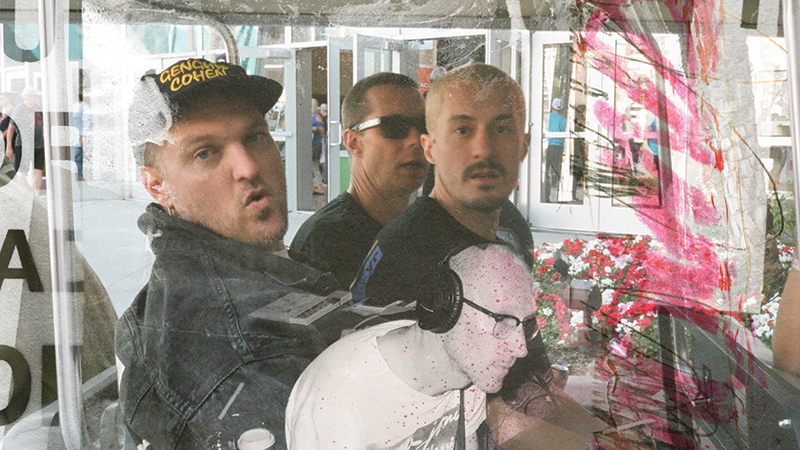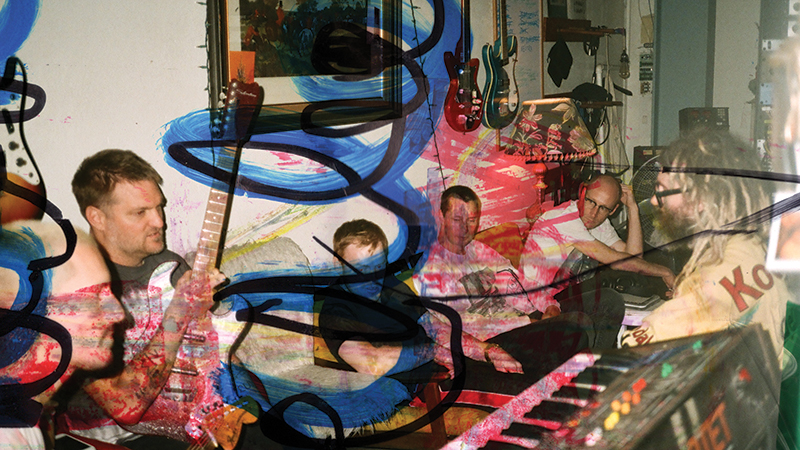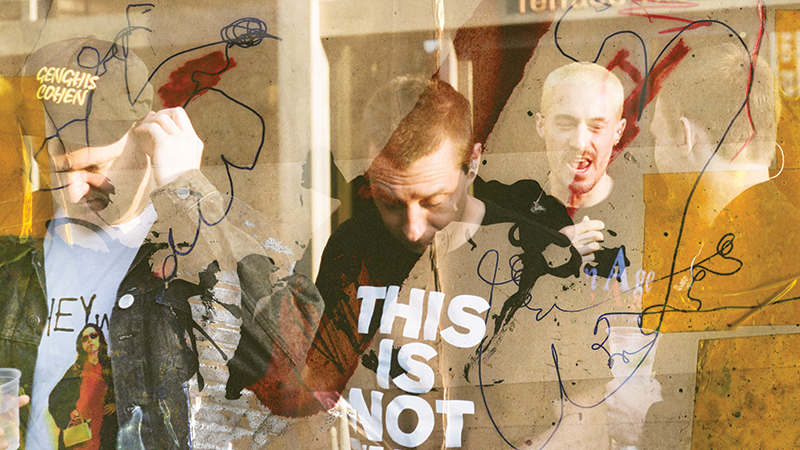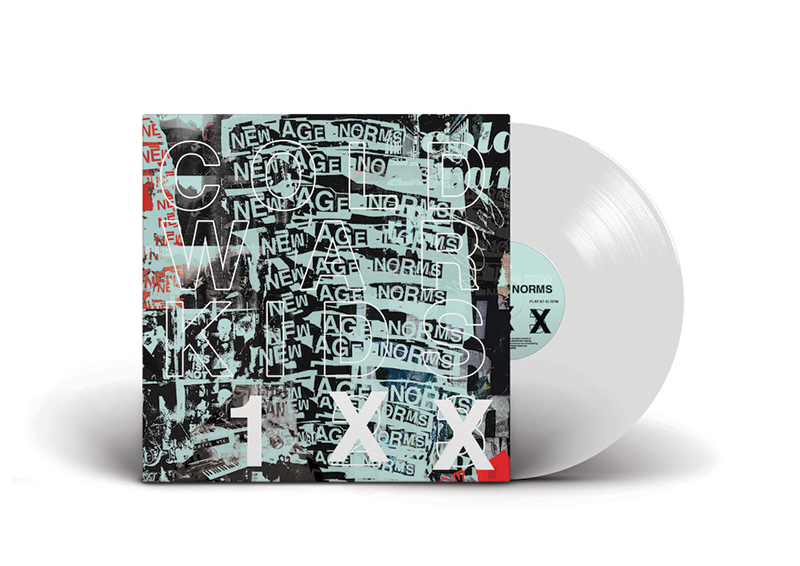Nathan Willett opens up about new inspirations, digital technology and taking songs from record to stage
After 15 years together as a band, Cold War Kids are still going strong. In the midst of a multi-part album rollout, band leader Nathan Willett sat down with us to share intimate details of their journey, their inspiration and their bar-room piano sound.
What were some of your biggest influences when you were starting out?
When we were starting, definitely the ’60s, ranging from a lot of old blues stuff to hip-hop, Fiona Apple and Velvet Underground.
Fiona Apple has a very visceral sound in her music. Do you find that you focus on this as a tactic for storytelling in your songwriting process? For example, in your earlier song ‘We Used to Vacation’?
I guess I haven’t totally articulated it that way but yeah, that’s the best way to say it, having the words match the music, emotionally, that’s the best when you can do that. I don’t always set out to do it but sometimes things work out that way.
How have your musical inspirations changed over the years? What are some bands that inspired this album series?
Frank Ocean, Steve Lacy, SZA. There’s so much good music out there that I feel less like I’m influenced by a singular artist or record, but when we are working on so much you get inspired by little pieces of [lots of] things.

Are there any specific instances that you can think of where you were inspired?
Yeah, I have a huge Spotify playlist for all the stuff we are inspired by for this record. There’s this Curtis Mayfield Record called There’s No Place Like America Today and I listened to that a ton and it’s really minimal but like sick and gospel-soul. It feels very modern. That’s one of the biggest things I really dug into during the making of this record.
Is there any equipment you use that has been there for the entire run of the band; is there an instrument that you need to get your specific sound?
Yeah, we have an old upright piano that we use for everything, we’ve even sampled it so that if anything ever happened to it we’d still have the sounds. Like, when we play live we play a keyboard with the piano that has every note sampled from the piano we record with. And it’s kinda rad, because a lot of people are shocked that it’s not a real piano that we’re playing with. That’s a huge thing for me because at a certain point that slightly out of tune bar-room upright piano is such a part of the sound. There are a few things like the original Fender Super Reverb amp, and a Silvertone guitar that we’ve used on every record, as well.
There’s something really great about knowing what your sonic palette is and being able to write the best song you can within it.
Do you have any brand loyalty?
It’s interesting because we’ve gone through phases — the early days we did with our friend Matt, who is a very analogue guy who was very much like, ‘There’s only one way to do everything.’ And that was very helpful in a way, the very rigid ‘that’s how you get this sound’ and we were all about hollow body guitars, but after years of touring and years of those guitars being out of tune and breaking and airlines dropping them and being busted when you open them, I think we became a Fender band because of that.
We bought a Yamaha CP70, kinda like a baby grand piano — they are very heavy, made in the ’80s and U2 used them, a bunch of people used them.
But it’s a real piano you know, when we were starting out it was the biggest thing in our trailer, we brought it everywhere, we loaded it up everywhere. And we would tune it when we got there.

We just had this feeling like playing a digital piano on a stand and having your legs and feet be naked underneath it just didn’t feel…I just want to hit real keys. We went way above and beyond to have that.
Now they make way better weighted keys and electric pianos, so we can have amazing piano samples that sound better than any real piano we could bring on tour. It’s crazy how technology has changed.
You’ve been a big band throughout the majority of that change, what has that experience been like?
Even the early days of recording to tape and starting to learn about plug-ins, we had this very strong idea that recording was about a performance and a commitment to that, but over time breaking away from that and being comfortable making things different than they are performed.
It’s much more creative to think outside of the box.
There was a period where the digital imitations sounded crispy and unnatural, but then around 2010 – 2012 and we were like, ‘Wait a minute, all these companies did this incredible stuff, and some people still won’t admit that some of this stuff sounds just as good as a lot of analogue stuff.’ And it doesn’t have to be an ‘either or’ thing if you want to use an Ampeg plug-in or your real amp, just do whatever sounds best.
Is there somewhere you always start from when writing a song, be it words, melody, drums?
Pretty much always music first, then singing along and finding melodies, and then making sure that’s strong and making sense of the mumbly words. I always try to use the mumbly words, but I usually end up rewriting everything ten times. There’s been a few that have stayed simple but it drives me crazy when it doesn’t make sense and feel powerful over being abstract.
Do you ever find you write a poem and then try it out on different music?
Yeah, for sure. I always love the idea that like Eddie Vedder’s got a notebook full of chicken scratch lyrics and pulls it out with the band. I love that idea, but I usually think it’s like a square peg in a round hole, trying to force it. And it’s funny, the more years that pass the more I learn the basic stuff that things that poetically could be really cool on a page don’t often sound phonetically as good, there’s some words that just don’t sing well. I like to sing things out and it has to be vowelly.

How do you manage rehearsals, is it a weekly thing, daily? How does songwriting work its way into rehearsal?
It’s usually something that we are incredibly inconsistent about; we actually did a bunch for learning a lot of new songs, we are recording a lot of different ways, some of them have been very full band, and others have been the producer and myself.
In the old days, the first time we played our songs to tracks, there were certain songs where we just couldn’t figure out how to get the arrangement… and in hindsight it’s just laughable. We just weren’t that flexible; we were thinking too small. People will never notice ALL of these things and the important part is just that we play the song.
There’s also a certain point where you have as much music as we do, and so many years where even if you all worked on something all together in the studio, you still have to sort of learn it as though you are covering the song.
When you are playing some of your more famous songs, do you ever feel like you’ve become a slave to the original mastering of the song? Or do you feel that you have the room to still be creative and find what’s new in each performance?
There are a few songs from the first record that we’ve kinda always played — those songs we’ve probably played every night, every time we’ve ever done a show. It’s weird, I’ve never disliked any of those songs, I’ve never had like a strange feeling playing them. And we never had to sell people on them, they were our only songs.
There are also some songs from our older records that are different live, and just truly better live, and are either way too slow on the record or way too ‘something’ that in hindsight we can’t believe we played that [way].
Do you feel that you work better as a team now than you used to?
We’ve gone through a lot of members, but yeah. There’s always so much of the romantic side of the early years of the band, where nobody knows what they’re doing and it’s just trial by fire, which is the best, and at the same time that can only last so long. You have to be a team and have your roles so that you can support each other.
There’s a much healthier common vision that we have. The beginning is chaos.

The Cold War Kids have come a long way, but through a changing music scene have maintained a connection in their sound and to each other. Nathan is excited to begin the official tour of the album starting this November.
photos by Matthew Siskin
